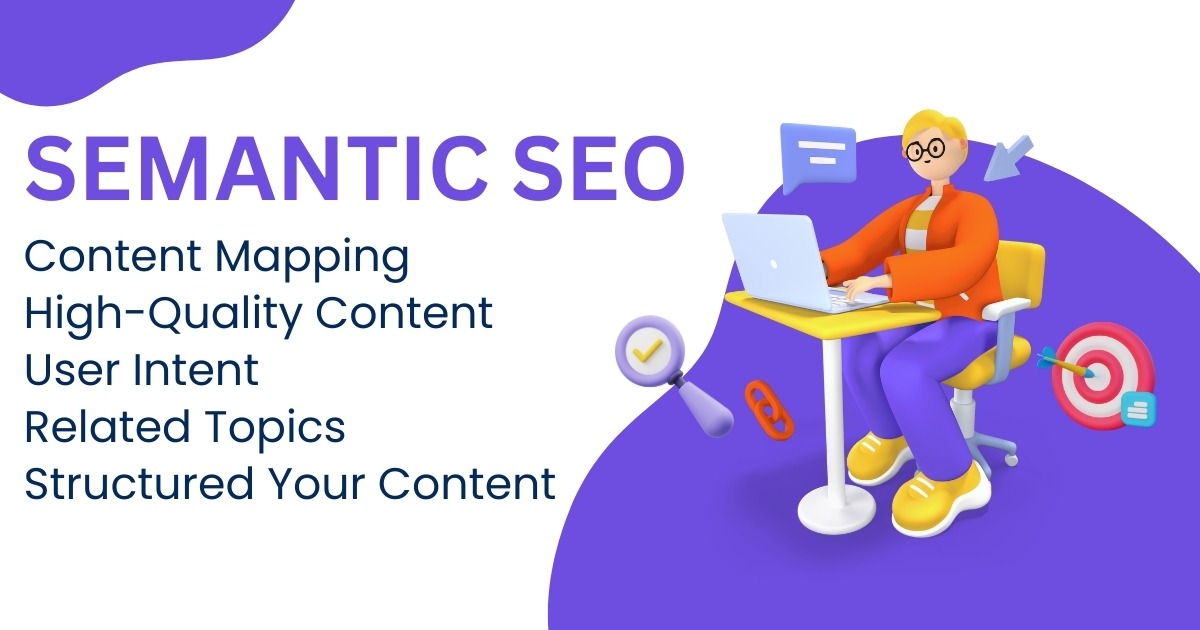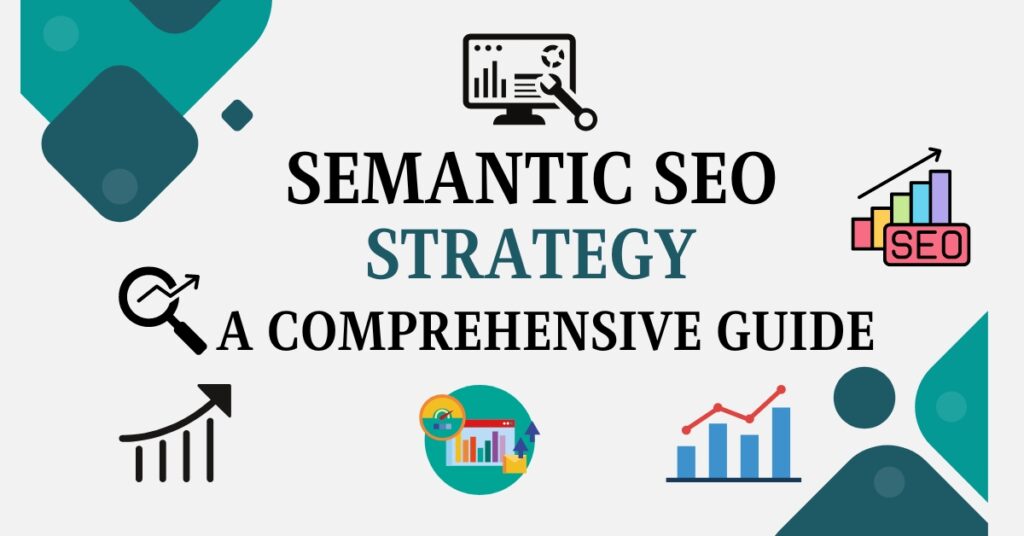What is Semantic SEO?
Semantic SEO is an advanced search engine optimization method that focuses on understanding the meaning behind search queries. Rather than just matching keywords, semantic SEO aims to understand the intent and context of a user’s search. This technique enhances the search engine’s ability to provide more relevant and accurate results.

What Does Semantic SEO Mean?
Simply put, semantic SEO means optimizing your content to be more meaningful and contextually relevant. It goes beyond traditional keyword targeting. Understanding the relationships between words, phrases, and concepts allows you to create content that more closely aligns with user desires.
Why is Semantic SEO Important?
Semantic SEO helps search engines understand the context and intent behind a user’s search, leading to more accurate and relevant search results.
What is a semantic core?
A semantic core is a collection of keywords and phrases that cover key topics relevant to your business and is the basis for building a focused content strategy.
Advantage of a semantic core
Improves content relevance: Ensures your content covers a wide range of key topics
AIDS Content Strategy: Helps plan and create content aligned with search intent.
Semantic Search vs. Keyword Search
Semantic Search
- Focuses on Context and User Intent: Natural Language Processing (NLP) is used to understand complex queries better.
- More Accurate: Provides results based on the meaning behind words rather than just the words themselves.
Keyword Search
- Relies on Exact Match Keywords: Often fails to understand the deeper context of queries.
- Less Effective for Complex Queries: You can miss the mark on providing relevant results for more nuanced searches.
What is Semantic Markup SEO?
Semantic markup SEO involves using HTML tags to help search engines better understand your content.
Examples of Semantic Markup
- Schema Markup: Adds structured data to your web pages, improving visibility in search results.
- Open Graph Protocol: Enhances how your content is shared on social media platforms.
Benefits of Semantic Markup
- Improves Search Engine Understanding: Makes it easier for search engines to grasp the context of your content.
- Enhances Visibility: Structured data can lead to rich snippets, improving click-through rates.
How to Apply Semantic SEO?
Implementing Semantic SEO involves understanding user intent and creating comprehensive content that answers their questions. Here are a few steps:
- Research User Intent: Understand what your audience is looking for and why.
- Use Semantic Keywords: Include keywords and phrases related to the main topic from different angles.
- Create High-Quality Content: Create content that provides in-depth answers and valuable insights.
- Structure your content: Use headings, subheadings, and bullet points to make your content easier to read and scan.
- Use related entities: Mention related topics and entities that give context to your content.
How to Implement Semantic SEO?
Implementing Semantic SEO Involves Several Key Practices:
- Keyword Research: Identify primary and secondary keywords related to your topic.
- Content Optimization: Make sure your content covers a wide range of content, including answers to potential users’ questions.
- Schema Markup: Use structured data to help search engines understand the context of your content
- Internal linking: Link to related articles and resources on your website to create a network of related content.
How Do I Apply Semantic SEO to Different Niches?
Applying Semantic SEO across different niches involves customizing your approach to specific industries or audiences. For example:
- E-Commerce: Focus on product-related queries and create product descriptions, reviews, and buying guides.
- Health and Wellness: Provide comprehensive articles on specific health conditions, treatments, and wellness tips.
- Technology: Cover various aspects of a technology product, from specifications to user reviews and how-to guides.
How Do You Use Semantic Keywords?
Semantic keywords include words that are contextually related to your main keyword. Here’s how to do it:
- Synonyms and Variations: Use variations and synonyms of your primary keywords.
- Related Concepts: Include keywords related to the broad topic you are covering.
- Answer Questions: Address common questions asked around your main keywords.
How Do You Apply SEO?
Applying SEO involves several steps to ensure your content ranks well in search engine results:
- Keyword Research: Find out what your target audience is searching for.
- On-page Optimization: Optimize titles, meta descriptions, and headers, and Use keywords naturally.
- Quality Content: Produce content that is valuable, informative, and engaging.
- Backlinks: Build high-quality backlinks from reputable websites.
- Technical SEO: Ensure your website loads quickly, is mobile-friendly, and has a good structure.
Additional tips for getting the most out of Semantic SEO
- Use long-tail keywords that mimic natural language queries.
- Create content clusters around a main topic using subtopics and related terms.
- Utilise user-generated content such as reviews and forums to provide more context.
- Regularly update old content with new information and related keywords.
- Aim for featured snippets by delivering concise, well-structured answers in your content.
- Monitor keyword variations and adapt your strategy accordingly.
By incorporating these tips into your Semantic SEO approach, you can improve your website’s visibility, authority, and user satisfaction. This approach helps them stay ahead in the competitive landscape of search engine optimization. So, keep up with the latest SEO trends and always prioritize providing relevant and valuable content to your audience. Keep learning and adapting to stay in search engine rankings!
Conclusion
Semantic SEO allows us to understand user intent better and create content that provides value to our audience. By including related terms, using structured data, and building our content around specific niches, we can optimize our website for search engines while providing valuable information to users. Staying up-to-date with semantic SEO strategies is crucial to digital success with constantly evolving algorithms and a competitive landscape. So keep learning and adapting as you continue your SEO journey!


